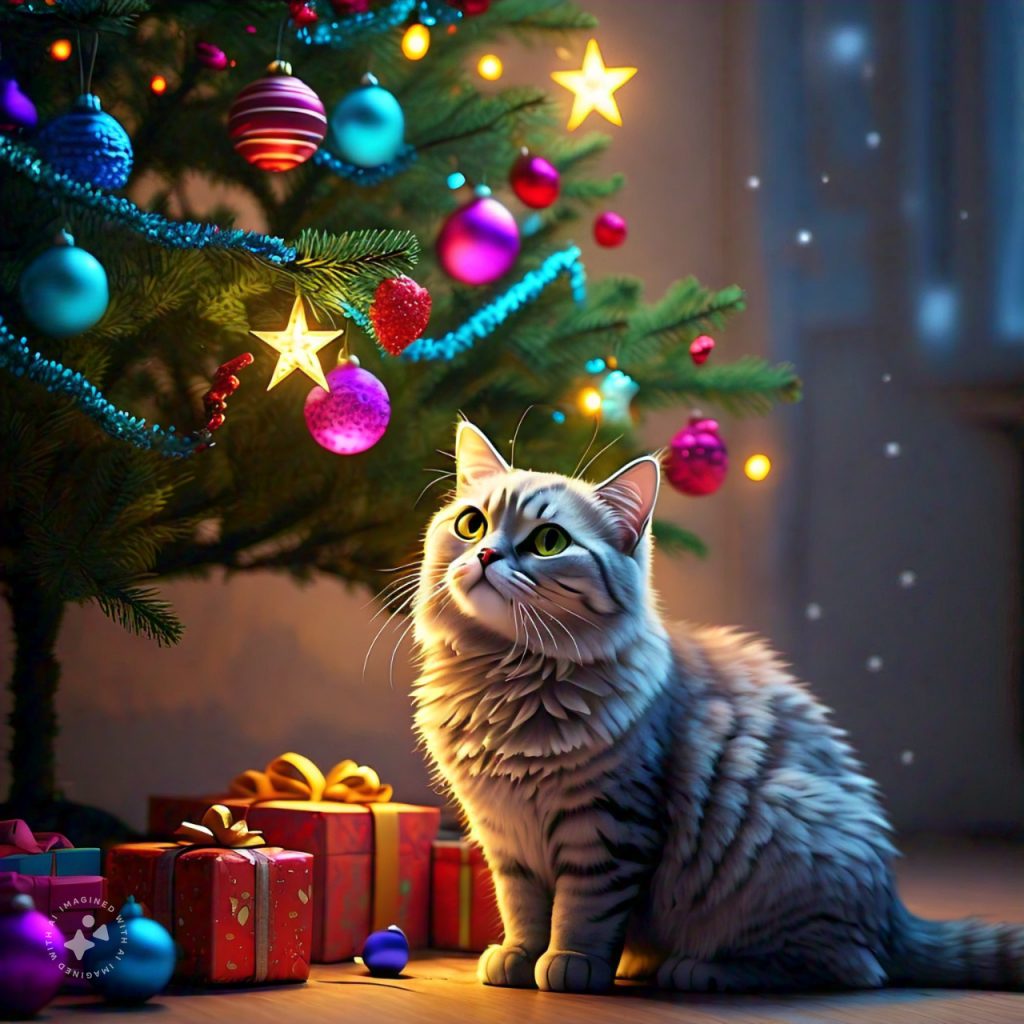The holidays bring festive decorations, family gatherings, and a touch of seasonal magic. However, if you’re a cat owner, it’s essential to ensure your home remains a safe space for your feline friends. Many popular holiday plants, while beautiful, can pose serious health risks to cats. In this article, we’ll explore the most common toxic holiday plants, their effects on cats, and how to keep your pet safe.
1. Poinsettias
Toxicity Level: Mild to Moderate
Poinsettias are synonymous with holiday cheer due to their vibrant red and green foliage. While they’re not as deadly as once believed, their sap contains chemicals that can irritate a cat’s mouth and stomach.
Symptoms of Poinsettia Poisoning:
- Drooling
- Vomiting
- Diarrhea
Prevention:
Place poinsettias in areas inaccessible to your cat, such as high shelves or enclosed rooms.
2. Mistletoe
Toxicity Level: Moderate to Severe
European mistletoe (Viscum album) and American mistletoe (Phoradendron species) are festive staples. Unfortunately, both can be dangerous for cats if ingested.
Symptoms of Mistletoe Poisoning:
- Drooling
- Vomiting
- Diarrhea
- Difficulty breathing
- Lethargy
- Collapse in severe cases
Prevention:
Opt for artificial mistletoe if you have pets, or hang real mistletoe securely away from reach.
3. Holly (Ilex species)
Toxicity Level: Moderate
Holly berries and leaves contain saponins and methylxanthines, which can cause gastrointestinal distress in cats. The spiky leaves can also cause physical injury.
Symptoms of Holly Poisoning:
- Vomiting
- Diarrhea
- Lip-smacking
- Dehydration
Prevention:
Choose artificial holly decorations, or ensure live holly is well out of your cat’s reach.
4. Lilies
Toxicity Level: Severe (Potentially Fatal)
While not exclusive to the holiday season, lilies are often part of festive floral arrangements. Even a small amount—like licking pollen off fur—can cause acute kidney failure in cats. All parts of the plant are toxic, including the petals, leaves, and water from the vase.
Symptoms of Lily Poisoning:
- Vomiting
- Lethargy
- Loss of appetite
- Increased or decreased urination
Prevention:
Avoid bringing lilies into your home entirely if you have cats.
5. Amaryllis
Toxicity Level: Moderate
Amaryllis plants, with their striking red or white blooms, are popular holiday gifts. However, they contain lycorine, a toxin harmful to cats.
Symptoms of Amaryllis Poisoning:
- Vomiting
- Diarrhea
- Tremors
- Lethargy
Prevention:
Keep amaryllis plants out of your home if possible. If gifted one, ensure it’s kept in a space your cat cannot access.
6. Christmas Trees (Pine, Fir, Spruce)
Toxicity Level: Mild
While Christmas trees aren’t highly toxic, their needles and sap can cause issues. Ingested needles may lead to gastrointestinal upset or obstructions, while sap can irritate the mouth and skin.
Risks:
- Vomiting
- Drooling
- Irritation from essential oils found in some tree varieties
Prevention:
- Secure your tree to prevent tipping.
- Vacuum regularly to remove fallen needles.
- Avoid using tree preservatives or additives in water.
7. Ivy (Hedera species)
Toxicity Level: Mild to Moderate
Ivy is often used in garlands and wreaths during the holidays. While visually appealing, it contains triterpenoid saponins that can irritate cats.
Symptoms of Ivy Poisoning:
- Drooling
- Vomiting
- Abdominal pain
Prevention:
Replace real ivy with artificial alternatives for a pet-friendly decoration.
Safety Tips for Cat Owners
1. Choose Pet-Safe Plants
When decorating your home, opt for pet-safe alternatives such as:
- Christmas cactus
- Spider plants
- Boston ferns
2. Use Barriers
Place toxic plants in areas inaccessible to your cat, or use pet-safe deterrents like bitter sprays.
3. Monitor Decorations
Cats are naturally curious, so supervise them around holiday decor. Avoid dangling plants that might tempt playful swats or bites.
4. Know the Emergency Steps
If you suspect your cat has ingested a toxic plant:
- Remove the plant or substance immediately.
- Contact your veterinarian or an emergency pet poison hotline.
- Provide detailed information about the plant and symptoms observed.
5. Educate Guests
Inform guests about keeping their holiday gifts and flowers away from your pets.
Final Thoughts
While holiday plants add beauty and warmth to your home, they can pose significant risks to curious cats. By understanding the dangers and taking preventative measures, you can ensure a joyous and pet-safe holiday season.
Have questions about toxic plants or pet safety? Share them in the comments below!

